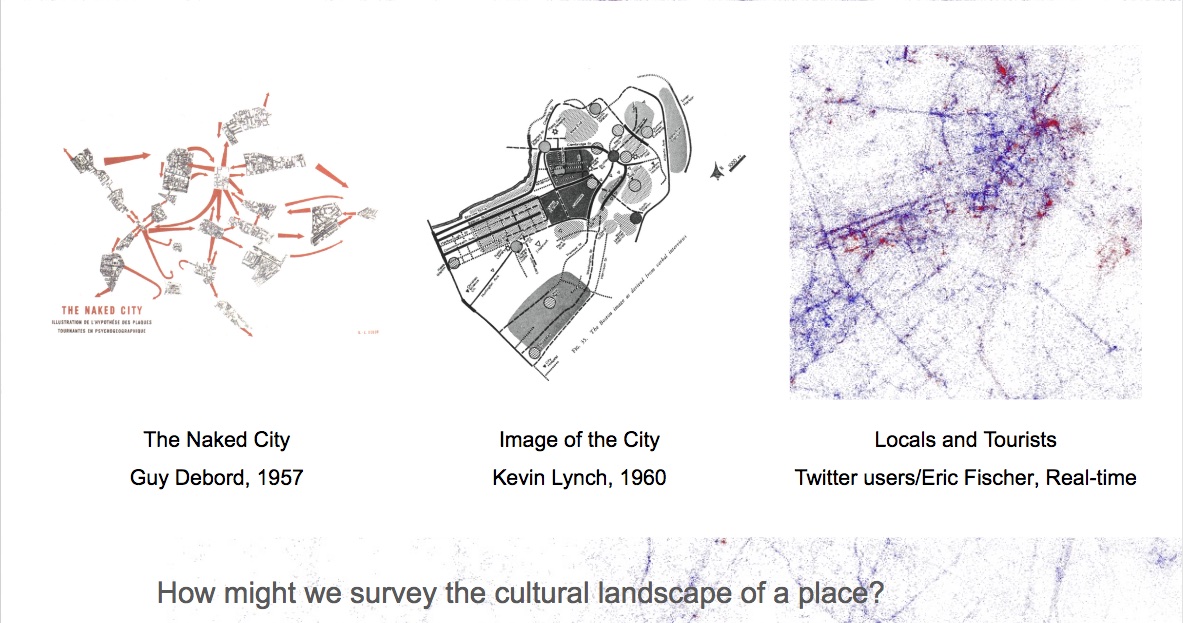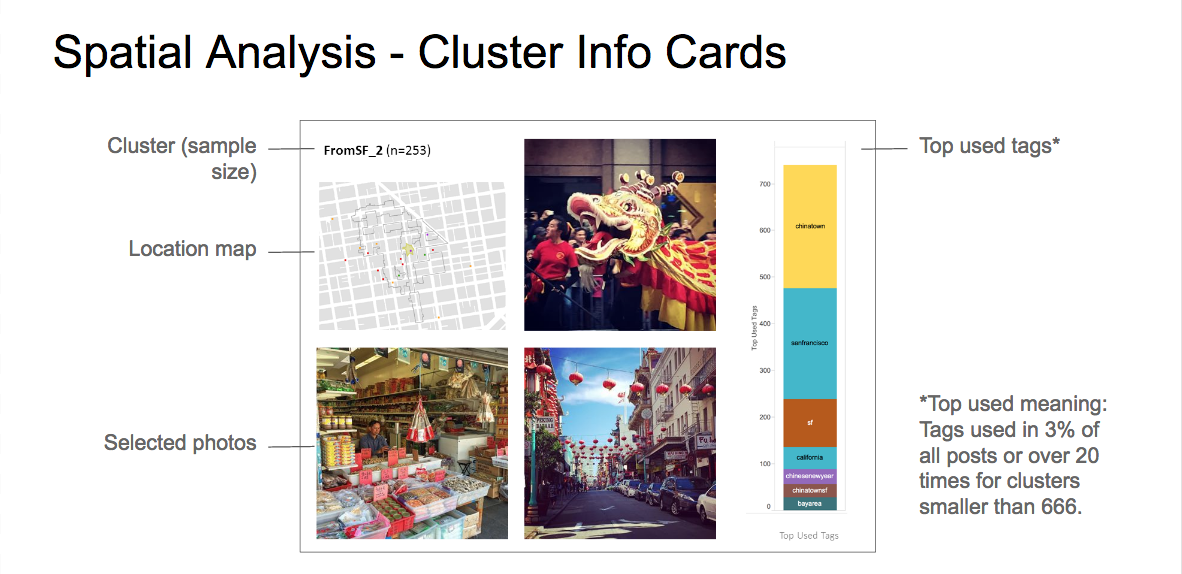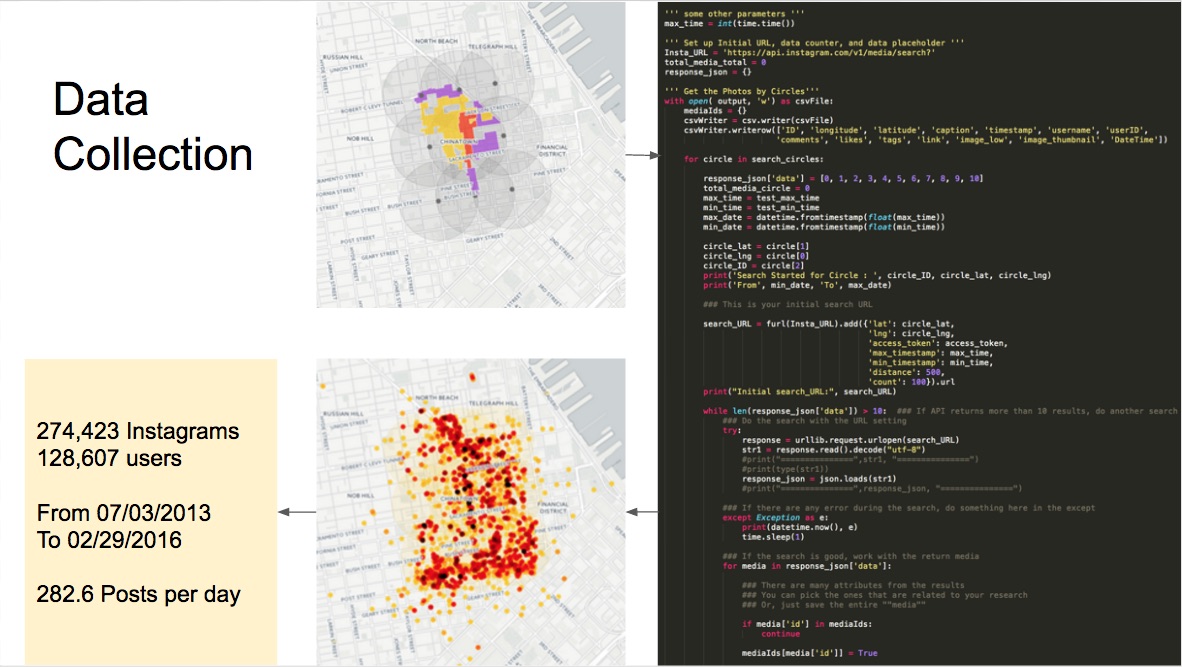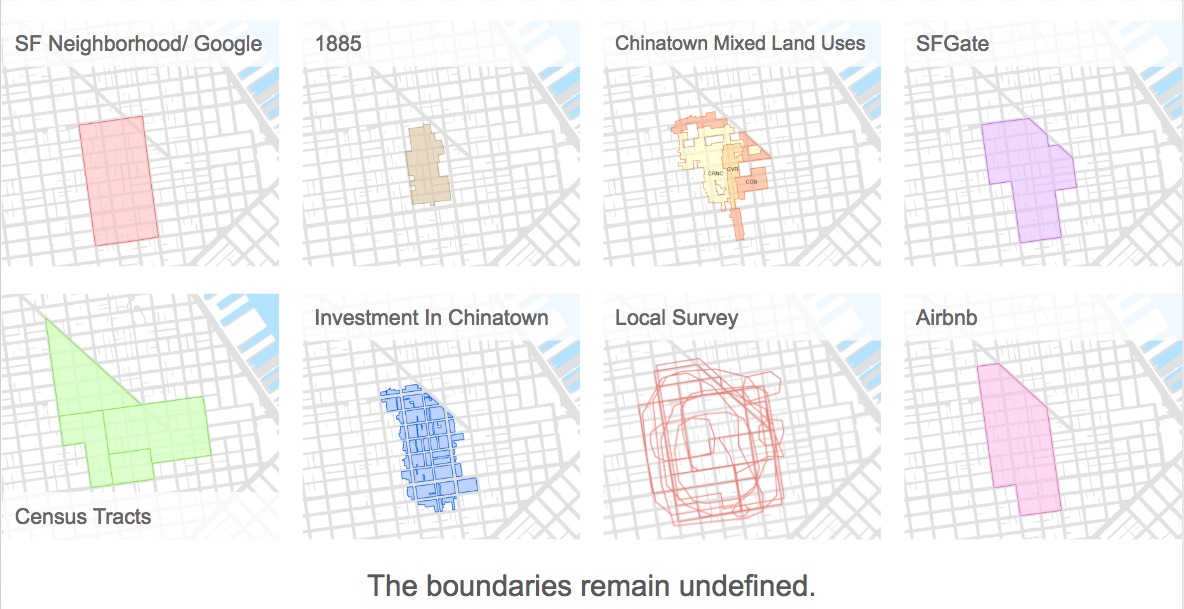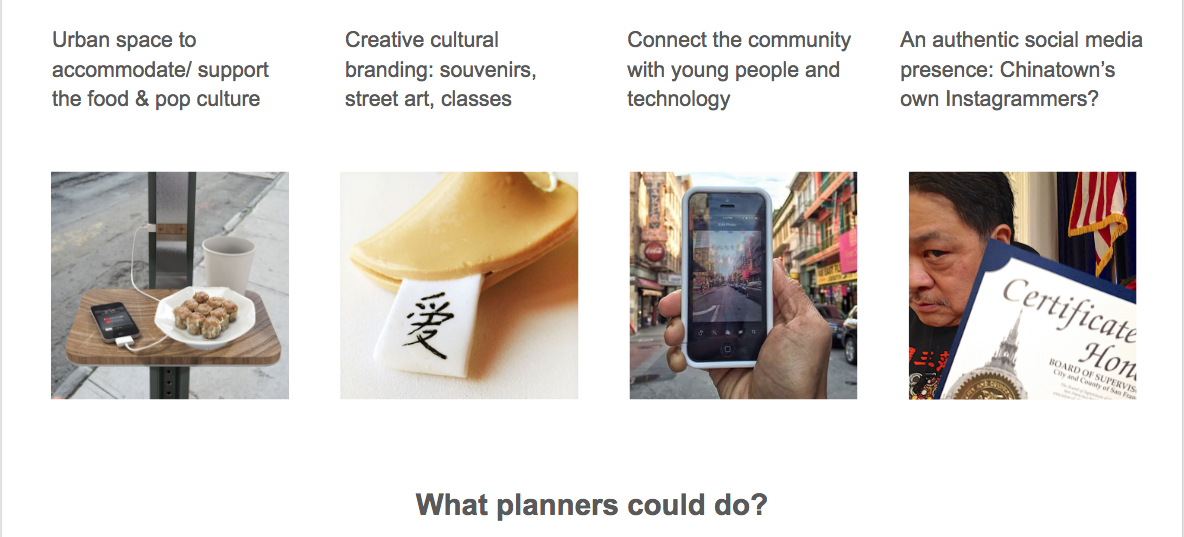In Search of Authenticity: A Case Study of San Francisco Chinatown
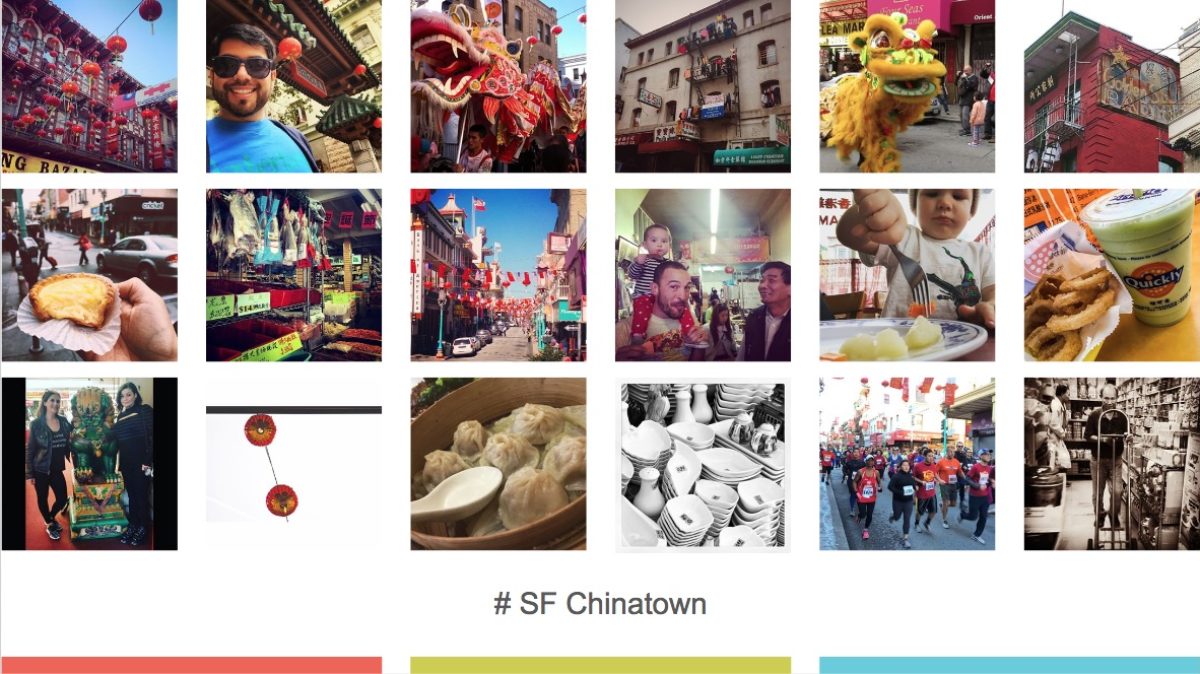
by Yunjie Li (MDes ’16)
A city or neighborhood is attractive because of its unique and distinctive culture that people applaud as “authentic”. This thesis studies the case of San Francisco Chinatown on where the “authentic” Chinatown experience is found, and specifically how is it different for three groups of people: tourists, San Francisco residents and locals from the area. Using geo-tagged Instagram data, users were first grouped according to the time pattern of their local posting activities. Next a series of analytic and visualization tools, including kernel density and the DBSCAN algorithm, were used to analyze the spatial footprint and social media content of each group. An additional resident survey was also conducted to provide an alternative local perspective for comparison. The results validated that people tend to experience the cultural space of San Francisco Chinatown differently depending on their relative role to the place. Also the potential risk of missing certain demographics (the locals in this case) in such analysis was discussed. Finally, three urban planning strategies were recommended to the San Francisco Chinatown community for the social media age.
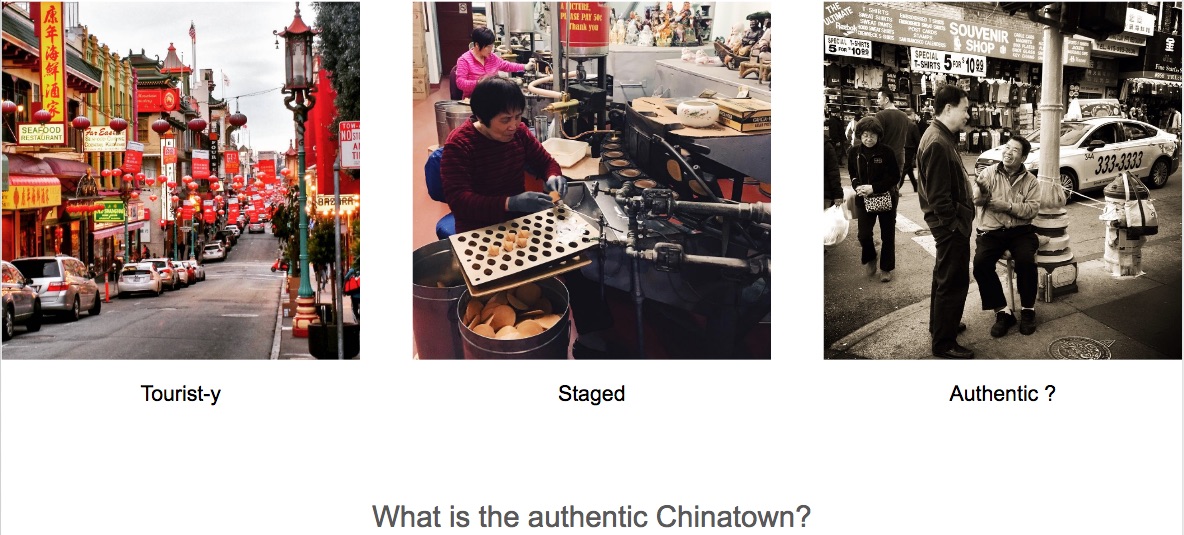 The research implications are twofold. First, by arguing that the “authenticity” is subjective to the individual’s personal experience and background, it calls for more flexibility and extensibility in decision making on cultural conservation and community development. Second, by constructing a standardized workflow to analyze large volume of geo-tagged social media data, it hopes to explore new possibilities of utilizing big data to answer urban research questions previously difficult to quantify or model otherwise.
The research implications are twofold. First, by arguing that the “authenticity” is subjective to the individual’s personal experience and background, it calls for more flexibility and extensibility in decision making on cultural conservation and community development. Second, by constructing a standardized workflow to analyze large volume of geo-tagged social media data, it hopes to explore new possibilities of utilizing big data to answer urban research questions previously difficult to quantify or model otherwise.
